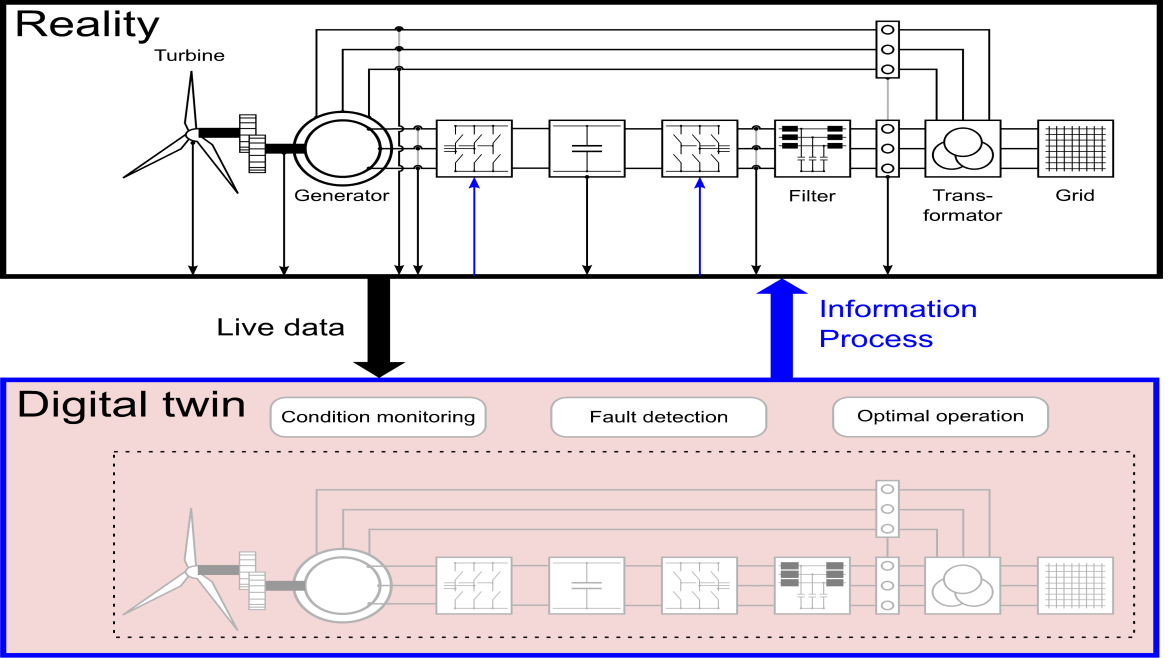e-TWINS
Holistic digital twins for the energy system
Subproject MUAS: Holistic twins for the electrical subsystems and the grid connection
Prof. Dr.-Ing. habil. Christoph M. Hackl
Department of Electrical Engineering and Information Technology
Laboratory electrical energy storage

The energy revolution is converting our electric energy system into a complex and decentralized generation system that has dominant share of renewable energy. With its potential of condition monitoring, fault detection and operation optimization in real time, digital twins shall serve as an innovative tool to accelerate this revolution process. By developing, implementing, applying and demonstrating a holistic software platform, the e-TWINS project aims at a comprehensive application of digital twins for the future energy system, taking scalability, modularity, extensibility and conversion in large trans-regional systems into consideration.
The subproject “Digital twins for the electrical subsystems of renewable energy systems and their grid connection” at the Munich University of Applied Sciences (MUAS) consists of two tasks:
- Holistic twins for subsystems of the generator side;
- Holistic twins for subsystems of the grid side and grid connection.
For each task, algorithms for condition monitoring and fault detection shall be developed, enabling robust and reliable detection of faults in system states and/or possible components in real time.
Upon this, it is possible to reduce maintenance cost and to improve system efficiency and reliability with self-learning and fault-tolerant control methods. Meanwhile, machine-side and grid-side equipment and components can be protected by that robust recognition and real-time adaption to system changes (e.g. already at early phases of upcoming faults). As an overall result, grid stability and voltage quality can be improved. Another potential lays in the efficiency optimization of renewable energy systems. Analytic solutions of the underlying efficiency optimization problems that consider all dominant non-linear physical effects shall be found to push the limits of achievable efficiency of modern renewable energy systems. These intelligent algorithms will be based also on the developed digital twins of the electric subsystems.
Running duration:
01.01.2020 - 31.12.2022
Funded by:
Federal Ministry for Economic Affairs and Climate Action
Project executing organisation:
Project Management Jülich
Project Partners:
- Technical University of Munich, Prof. Carlo L. Bottasso
- Zentrum für Sonnenenergie- und Wasserstoff-Forschung Baden-Württemberg
- MesH Engineering GmbH